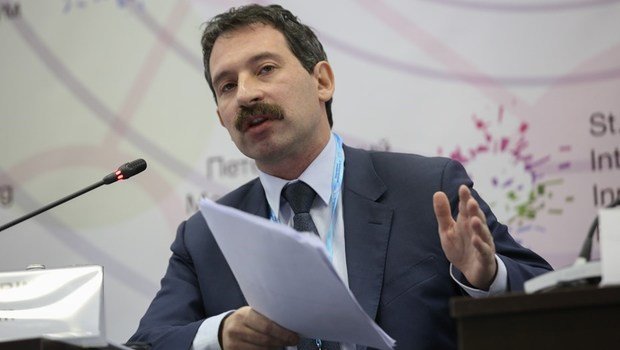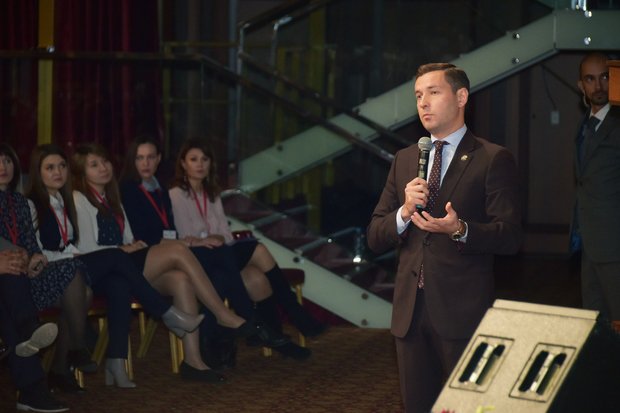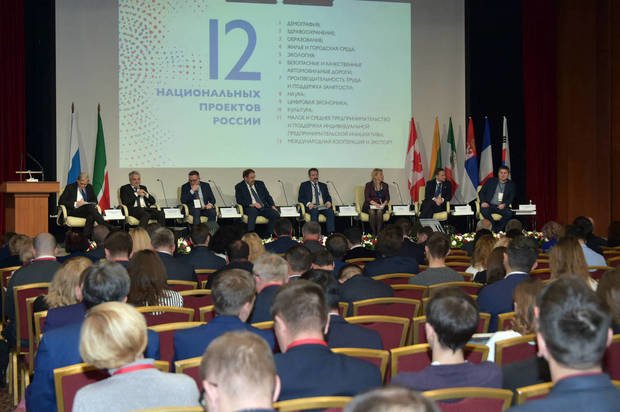''Zdunov had been nagging: 'Let’s launch R&D for hockey sticks because composite materials are a priority''
How hockey sticks help demography: the role of industrial clusters in national projects was discussed in Kazan
Partnership for Cluster Development international scientific conference kicked off in Kazan on 1 November. It began with a discussion of the meaning of industrial clusters in 12 national projects approved by Vladimir Putin. Representatives of the Ministry of Economic Development and the Ministry of Industry and Trade of Russia gave clusters a leading role, moreover, not only in economic but also social national projects. Realnoe Vremya tells about the influence of Zaryad hockey sticks on demography.
''The role of clusters and regions in national projects is extremely important''
The topic of cluster development was raised due to the May Decrees. Putin gave regional authorities a task of breakthrough economic growth. A huge role here is given to industrial development, and one of the goals is to increase the number of enterprises dealing with technological innovations to 50%. Now they total about 75. Will companies be able to make a technological breakthrough for six years? They will, and the creation of clusters might become the main tool, authorities suppose.
''The work on creation of national project has finished. We have 12 national projects and Vladimir Putin's instruction to develop the Far East – it's another national project. A big role in national projects in given to regions. There is a tool launched by the Ministry of Economic Development once – an institution of clusters. In this respect, the role of clusters and regions in national projects is extremely important,'' thinks Ivan Bortnik, an adviser to the Russian president.
In Director of Strategic Development and Innovations Department of the Ministry of Economic Development of Russia Artyom Shadrin's opinion, clusters are needed for all national projects. Shadrin put examples of economic decrees, from the productivity project to support of SMEs and international cooperation and export. In the latter project, they count on big players: it's KAMAZ in Tatarstan. The task of cluster politics is to support component suppliers. It's mainly SMEs.

Ivan Bortnik put another two projects as an example where clusters could play a big role – it's demography and health.
''The demographic politics resulted in a significantly longer average lifespan, a fall in mortality, and the government offered a pension legislation reform, but here not all people were glad. It's incorrect discontent, I think,'' the speaker diverged from the topic a bit. ''One of the areas of the demographic politics is sport, the involvement of newborn babies to old people into the sport, and we need to support R&D in sport,'' he offered.
''Artyom had been nagging: 'Let's launch R&D for hockey sticks''
Minister of Sport of Tatarstan Vladimir Leonov decided to tell about clusters in the sport. According to him, it's a promising market – year-round turnover in Russian sport reaches $1bn, and no more than 10% of all goods are made in Russia.
''We puzzled about it in Tatarstan. And one of the companies is Zaryad that manufactures hockey sticks, they are competitive. We're having a dialogue with ICL about timekeeping, with KAMAZ about the production of awards, and there are a lot of such cases,'' Leonov approached the question about R&D. ''In the sports cluster, we need to create a site to connect science, technologies, IT, the production we have in Tatarstan.''
Leonov says it was a crazy idea to launch snowboard production several years ago, ''now this production accounts for 10% of the snowboard sales market in our country.''
''I asked a question about R&D because Artyom [Zdunov, prime minister of Dagestan, former Tatarstan economic minister] had been nagging: ''Let's launch R&D for hockey sticks because composite materials are a priority,'' Ivan Bortnik made a lyric digression again and greeted the audience on behalf of Zdunov.

Denis Tsukanov, deputy director of the Regional Industrial Politics and Project Management Department of the Russian Ministry of Industry and Trade said the country had 39 industrial clusters at the moment, of which seven are located in Tatarstan. Over 130 enterprises work in these clusters, each of which provides at least 35% of products to a cluster member. About 30 additional joint cluster projects are prepared for the next year.
''In the future, we focus not only on import substitution support but also export potential. And in some regions, clusters can be a successful example of accomplishment of this task,'' Tsukanov thinks.
Managing Director of Leontief Centre – AV Group Aleksey Krylovsky says that cluster initiatives that are to appear in Russia are less important than the 12 national projects.
Aleksey Prazdnichnykh, director of State and Non-Commercial Sector at Strategy Partners Group said that ''clusters are a regional story, while the main goal is to create competitive clusters in every region that could accomplish social and economic tasks.''
''Traditional enterprises, even considering modernisation, will provide with no more than 2% of growth a year''
Oleg Fomichev, director on Strategic Planning and Development at Renova Holding Rus PLC, thinks it's possible to carry out May Decrees and accelerate the economic growth by augmenting innovative components – traditional enterprises, even considering modernisation, will provide with no more than 2% of growth a year.
''Territories need to be used correctly. Tatarstan pointed out three – Kazan, Kama and Almetyevsk. But interregional cooperation is needed. Now Tatarstan is creating an agro-industrial park on the border with Kirov Oblast and Mari El because Tatarstan owns technologies, while the neighbours have territorial and human resources. They come and make a competitive product on this site – it's a window of opportunity.''

Artyom Shadrin suggests that changes to legislation are prepared now to eliminate barriers that impeded from implementing technologies.
''We will prepare offers on tax incentives that would help companies allocate additional money on technological solutions. Amendments to the law on technological valleys have been made that level concessions received in Skolkovo centre to concessions in regions. It's significant social payment benefits. The federal law hasn't been signed yet. But regions with big universities, research centres have a chance to get them,'' Shadrin says.
Before the conference began, the audience had been offered to take part in a survey about the role of clusters in national projects. The majority voted for the option ''The key role of clusters is to consolidate initiatives and efforts of regional and local authorities, business, science and education. Balanced solutions considering interests of all groups.
In answer to the question which national project could result in the biggest economic growth, there wasn't a single opinion. Some people called ''productivity'', as the project includes several sectors, others – international cooperation and export ''because direct foreign investments regional competed for several years ago won't become a driver in the next five years''. The third group chose support of SMEs and appearance of new enterprises as a result. At the same time, regional authorities were advised not to focus on separate things: ''We need to take the ''stars'' from every national project for their priorities, and then it will work. It won't work if they are distributed across a region evenly.''